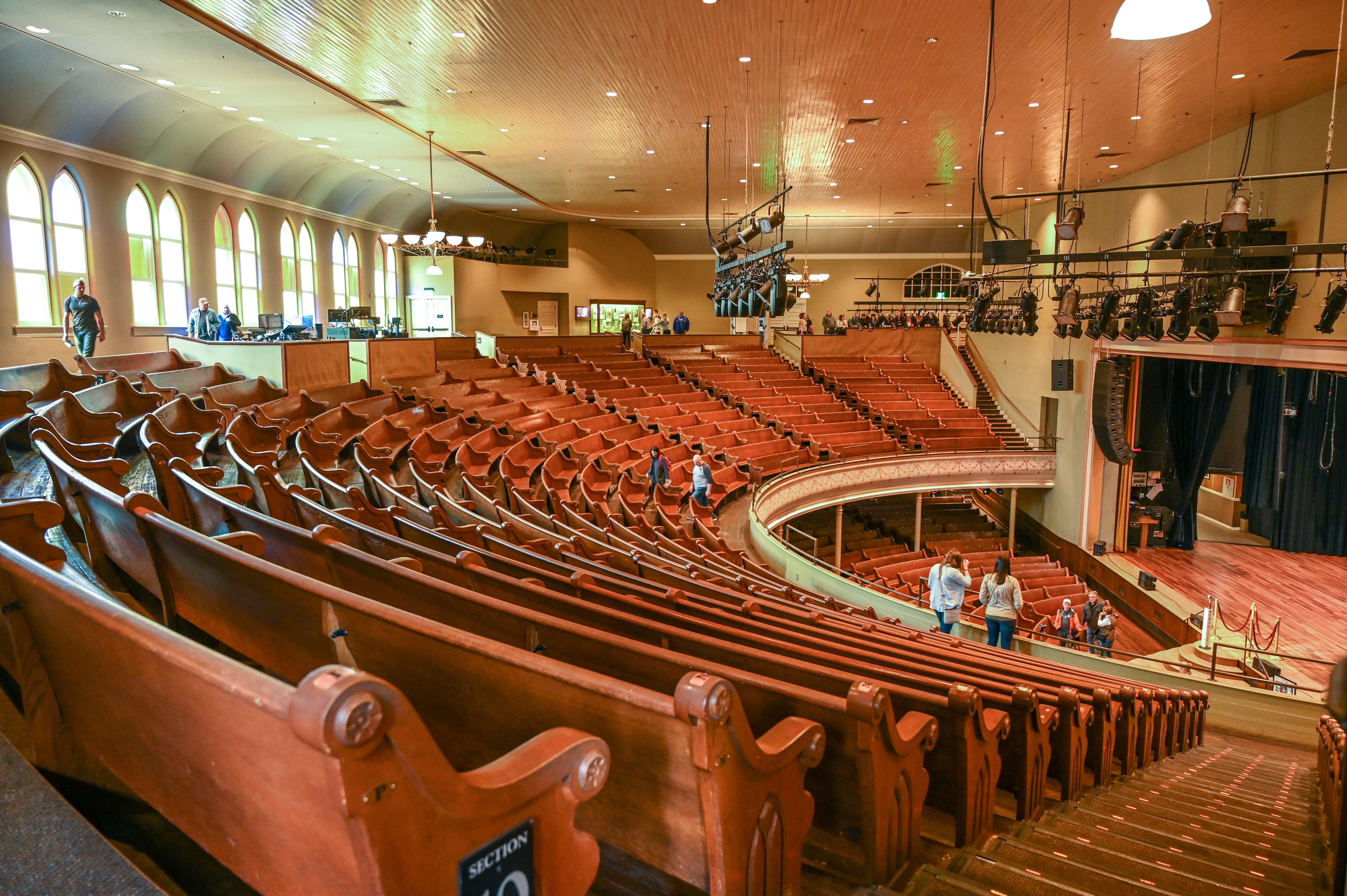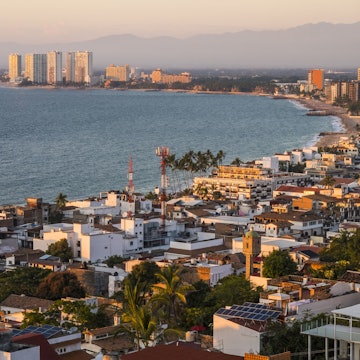
Nashville vs Memphis: which Tennessee city sounds better?



The music never stops at Sun Studio in Memphis or along Nashville’s Broadway. Left,Washington Post/Getty Images; Right, Jewel Samad/Getty Images
Where the mighty Mississippi River meets the Appalachian Mountains, Tennessee is a crucible of American culture. Which means its two largest cities, Nashville and Memphis, have major cachet when it comes to matters culinary and – above all else – musical.
We asked two of our local correspondents to makes a case for which of the pair sings the sweeter tune, fleshing out why it’s their city that deserves the encore.

They call Nashville “Music City” for good reason
A resident of Nashville for more than a decade, Bailey Freeman has fallen completely in love with the city’s creativity. When she’s not scribbling away at a story, she’s flying through the air as an aerial acrobat in Nashville’s performing arts scene.
When people ask me to describe Nashville’s vibe, I often say that the city hums. Music flows into the street from honky-tonks and other bars. Pots and pans clang in kitchens serving everything from sumptuous down-home meals to high-end tasting menus. Chittering animals and chatting locals crisscross the city’s many parks and trails. Nashville may be known worldwide for country music – but its song is much more layered than that.
And it’s one bound to get stuck in your head.

Nashville's legendary music scene
This city is one of the South’s great cultural bastions, particularly when it comes to music. The Fisk Jubilee Singers originated the town’s musical legacy: in 1873, the group performed for England’s Queen Victoria, who commented that they must come from a “city of music,” a quote that begat Nashville’s famous nickname, “Music City.” In the years that followed, Nashville saw the emergence of the blues and R&B scenes on Jefferson St, the national phenomenon that was (and continues to be) the Grand Ole Opry, and today’s ever-growing country and rock industries.
First, though, let’s be clear: Nashville owes Memphis a huge cultural debt. The music scene in Nashville has its origins in the Memphis blues, roots, rock and R&B greats whose ideas influenced (and were often appropriated into) the sound that has come to define Music City. And music is so integral, that today it’s hard to find a location in Nashville that doesn’t host some sort of live music. Head downtown for country and classic rock, bop over to East Nashville for everything from soul to experimental punk, or squeeze into South Nashville’s listening rooms to hear up-and-coming songwriters.

Though music gets most of the press, Nashville’s larger art scene is also varied and thriving – and it’s my favorite part of living in this city. Downtown and Wedgewood Houston host monthly art crawls centered around local businesses, while venues like OZ Arts regularly host boundary-pushing and genre-bending theater runs, fashion shows and dance performances. Events like Boom Bap (hip-hop), Artek (house and electronic) and QDP (Queer Dance Party) turn venues around the city into joyous dance floors, while places like Skull’s Rainbow Room and Old Glory host burlesque, drag and circus acts. Though regrettably under fire from the Tennessee State Legislature of late, the city’s drag scene is a treasure. Get out there and support our queens and kings at venues like Play, or at one of the city’s many drag brunches.

The flavors of Nashville
This creativity has spilled over into the culinary sphere, too; when I invite folks to visit, I always promise they’ll “eat and drink good.” If you want to eat quintessentially Nashville, you can’t miss the classics: indulging in a meat-and-three at Swett's, eating your fill of the family-style spread at Monell’s or sampling Nashville’s famous hot chicken straight from Prince’s, the dish’s originator.
And while Nashville may have a strong dedication to perfecting traditional fare, that doesn’t mean people aren’t innovating. High-end spots like Locust and Audrey have been named the best restaurants in the country by national publications like Food & Wine and The New York Times, and many of their contemporaries are pushing similar boundaries. Check out Bastion, Rolf & Daughters and Tailor, to name a few.

Music City’s food scene is also diverse, and you’ll find incredible eats from around the world. A few favorites come to mind: Anna and Arnold Myint carry on their mother’s legacy of serving Nashvillians amazing Thai food at International Market; Edessa Restaurant gives visitors a taste of top-tier Turkish and Kurdish cuisine; and Mofongo Café specializes in towering plates of savory Caribbean staples.
Nashville is a profoundly dynamic place, more so than people often give it credit for. It’s musical, colorful, creative and cozy. And it’s home. Lucky me.
Memphis: the “real” Music City
Joe Sills is a travel writer, explorer and photojournalist who was born and raised in Memphis. When he’s not on assignment, he can be found loitering in the city’s dive bars or recording new episodes of his travel show, The Get Lost Podcast, in a South Main basement.
If you’re a true music lover, Memphis should be a bucket-list destination. As local rapper Al Kapone wrote, “If music is your sweet tooth, Memphis is the candy.”
Nashville may market itself as Music City, but check the records (in all senses) and you’ll find more of America’s sonic roots in its counterpart on the Mississippi River. Memphis is the cornerstone of not one genre but at least four: the blues, rock ’n’ roll, soul and hip-hop.

The music began in Memphis
All you have to do is visit Memphis’s legendary Sun Studio, where you’ll discover the original pressing of Ike Turner’s song "Rocket 88" – widely recognized as the very first rock ’n’ roll hit. Beside it are original copies of vinyls bearing the first records of blues legends like Howlin’ Wolf, Little Milton and BB King – a clear nod to Memphis’s contribution to rock’s grandfather, the blues. Even Charlie Rich, a bonafide pioneer of the “Nashville sound” – a smoother, less honky-tonk sub-genre of country music that arose in the 1950s – cut his teeth in Memphis, as a session drummer at Sun. And that’s not even counting the work of Elvis Presley, Jerry Lee Lewis, Johnny Cash, Perkins and Roy Orbison.
Across town at Stax Museum of American Soul Music, an Oscar stands sentinel over a rotating, gold-plated Cadillac once owned by Southern soul godfather Isaac Hayes. The museum pays homage to a place that produced more soul hits than any city outside of Detroit. In the 1960s and ’70s, while Smokey Robinson, Marvin Gaye and Stevie Wonder were setting the world ablaze from Motown, Stax was giving the world Hayes, Otis Redding and Booker T. & the M.G.’s. Along with Al Green, Ann Peebles and Syl Johnson over at cross-town rival Hi Records, these musicians formed the core of the South’s most prolific hit factory.

You can still take in a show at Elvis’s inaugural concert venue, the Overton Park Shell; mellow out at Jerry Lee Lewis’s favorite haunt, Hernando’s Hideaway; or dine beneath the balconies where Billy Joel and KISS cut their teeth at Lafeyette’s Music Room. At unpretentious juke joints like Wild Bill’s or Earnestine & Hazel’s, dance the night away to soul classics. But here’s the thing: while tourism in Memphis focuses heavily on Graceland, Sun and Stax, the city’s musical impact is not locked in the past.
In the realm of hip-hop, the beats laid down by artists like Three 6 Mafia and 8Ball & MJG in the ’90s evolved into a sound that was exported to Atlanta to form the foundation of trap music in the 2000s – and which have now returned home under the banner of t modern artists like GloRilla, Moneybagg Yo, NLE Choppa, Duke Deuce, Blocboy JB, Key Glock and the late Young Dolph. Alongside Atlanta and Houston, Memphis has a strong case as the capital city of Southern hip-hop. As community leaders discuss building a museum dedicated to this groundbreaking genre, the city’s prominence in music is reaching heights unseen since the early ’70s.

A town that embraces the terms “grit,” “grind” and “blue-collar,” Memphis has had an outsized impact on global music despite playing second fiddle – at times even providing the fiddle players! – to Nashville. Sure, many Memphians view Nashville (perhaps unfairly) as a caricature of Southern tropes like stetson hats and trailer-park bars. But that’s because Memphis likes to keep it real.
Memphis keeps the party real
Stroll down Beale St on any weekend night and you’ll see the same ubiquitous, wheeled peddle taverns (aka “party bikes”) that first gained popularity in Nashville. Except here, passengers use these to bump hip-hop like Three 6 Mafia rather than Toby Keith. And they’ll skip the line for “hot chicken” and head over to Gus’s, where spicy birds are done their way – with the heat cooked in, not lathered on.

That’s not to say that Memphis doesn’t have its own trendy, Southern-influenced restaurants like Flight and exciting dining spaces like Catherine & Mary’s. Yet Memphians are often content to slide into a well-worn booth at The Bar-B-Q Shop or Cozy Corner Restaurant for a pile of the city’s world-famous barbecue. They also know their chicken wings – and the local hot wing trail might be one of the best in the nation.
Indeed, the best of this town is most often found in its unassuming corners, like the exemplary spirits divvied out in a purple bungalow at Midtown’s Memphis Whistle or the aforementioned jams at Earnestine & Hazel’s and Wild Bill’s – both removed from well-trodden bricks of Beale St.
What you hear in these spaces may become America’s next big sound.
Take your United States (USA) trip with Lonely Planet Journeys
Time to book that trip to United States (USA)
Lonely Planet Journeys takes you there with fully customizable trips to top destinations–all crafted by our local experts.
























